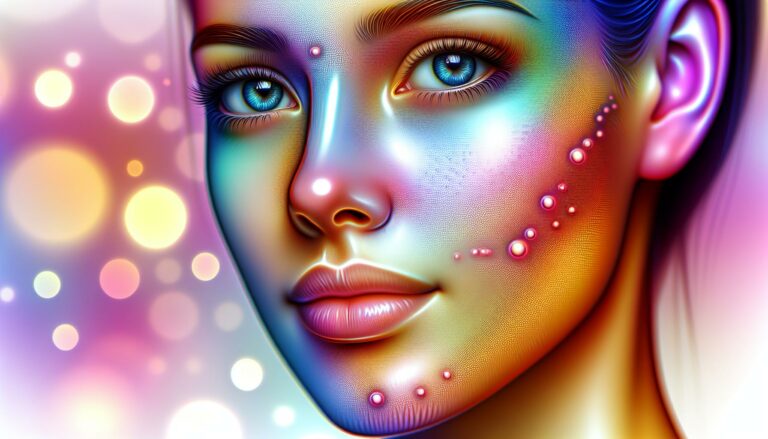Can You Tan on Accutane?
Thinking about catching some rays while on Accutane?
Hold that thought. Achieving that golden tan might seem tempting, but when Accutane is part of your skincare equation, the rules change.
Let’s navigate the complexities of sun exposure during Accutane treatment, ensuring you make informed decisions for your skin’s health and safety.
Well, we’ll be going over:
- Why does Accutane make your skin more vulnerable to the sun, and what risks does this entail?
- How can you protect your skin from the sun while on Accutane to prevent damage and ensure your treatment remains effective?
- Are there safe alternatives to traditional tanning that can give you that glow without compromising your skin’s health on Accutane?
Let’s dive in.

Can You Tan on Accutane?
When you’re on Accutane, stepping out into the sun demands caution. Your skin becomes more sensitive to sunlight, meaning even a short period of exposure can lead to sunburn. Unlike the immediate gratification of a sun-kissed glow, tanning on Accutane can have detrimental effects on your skin health.
It’s not just about discomfort or the immediate redness and peeling. The deeper concern lies in increased risks of skin damage and long-term effects like premature aging and heightened possibilities of skin cancer. Accutane’s impact on your skin’s ability to repair itself is substantial, which complicates things further when UV rays are in the mix.
So, if you’re wondering whether you can catch some rays and get that bronze look while on Accutane, the answer leans towards caution. It’s crucial to prioritize skin protection. Opting for a high SPF sunscreen, seeking shade, and wearing protective clothing will be your best bet to enjoy the outdoors safely. These steps don’t just safeguard your skin’s health during Accutane treatment but also support its overall well-being in the long run.
Understanding the Risks
When you’re on Accutane, understanding the risks associated with tanning is crucial. Accutane, scientifically known as isotretinoin, significantly increases your skin sensitivity to sunlight. This heightened sensitivity means the UVR (ultraviolet radiation) you’d normally tolerate without much consequence now poses a higher risk. Sunburn can occur more quickly and severely, leading to discomfort and potential skin damage.
Moreover, the long-term effects shouldn’t be taken lightly. While on Accutane, tanning can accelerate premature aging of the skin, manifesting as wrinkles and sunspots much earlier than expected. But perhaps more concerning is the increased risk of skin cancer, particularly melanoma, which is known to be aggressive and life-threatening.
To mitigate these risks, adopting comprehensive sun protection measures during and after Accutane treatment is essential. Shielding your skin from UVR isn’t just about avoiding immediate damage; it’s about preserving your skin’s health for years to come.
Photosensitivity and Accutane
When you’re on Accutane, your skin becomes more sensitive to sunlight, known as photosensitivity. This heightened sensitivity means even short periods of sun exposure can lead to sunburn. Unlike a regular sunburn, a sunburn on Accutane can be more severe and take longer to heal. This increased risk is due to Accutane’s effect on the skin’s ability to repair itself.
To manage this risk, it’s crucial to adopt comprehensive sun protection measures. Wear broad-spectrum sunscreen with an SPF of 30 or higher daily, even on cloudy days. Clothing plays a key role too, so opt for long-sleeved shirts, pants, and a wide-brimmed hat when outdoors. Remember, UV rays can penetrate windows, so consider UV-protective film for your car and home windows.
Photosensitivity may continue for some time after completing your Accutane course. Stay vigilant with your sun protection habits to safeguard your skin from premature aging and more serious conditions like skin cancer.
The Importance of Sun Protection
When you’re on Accutane, your skin becomes incredibly sensitive to sunlight. This sensitivity not only increases your risk of sunburn but also exposes you to the long-term dangers of premature aging and more severe, life-threatening forms of skin cancer, especially melanoma. Understanding and implementing comprehensive sun protection measures becomes non-negotiable to maintain your skin’s health.
To guard against these risks, you must adopt a multi-layered approach to sun protection:
- Broad-spectrum sunscreen with an SPF of 30 or higher should become a part of your daily routine, applied generously and frequently, especially if you’re spending extended periods outdoors.
- Protective clothing, like long-sleeved shirts, pants, and wide-brimmed hats, offers an additional layer of defense against harmful UV rays.
- Consider installing UV-protective film on windows in your home and car to shield your skin even when you’re indoors.
Remember, sun protection isn’t just necessary while on Accutane; it’s a crucial habit to carry forward in your skincare regime to prevent premature aging and mitigate the risk of skin cancer.
Alternatives to Traditional Tanning
When you’re on Accutane, soaking up the sun the traditional way isn’t the safest option for your sensitive skin. But that doesn’t mean you have to forgo a radiant glow. There are several skin-friendly alternatives that can give you a sun-kissed look without exposing your skin to harmful UV rays.
Self-Tanning Products have come a long way and offer a streak-free, natural-looking tan without the sun. Look for products labeled as non-comedogenic to ensure they won’t clog your pores, a crucial consideration while on Accutane.
Spray Tans are another excellent option. Opt for a professional service where technicians can customize the color to match your desired level of tan. Just make sure to inquire about the ingredients to avoid any that might irritate your skin.
Exploring these alternatives not only keeps your skin protected but also ensures you can achieve that desired glow safely. Remember, your skin’s health should always come first.
Conclusion
Tackling the desire for that sun-kissed glow while on Accutane doesn’t mean you have to compromise your skin’s health. Armed with the right sun protection strategies and safer alternatives like self-tanning products and spray tans, you can achieve the look you want without the risks associated with UV exposure.
Remember, the key is to protect your skin not just during your Accutane course but beyond, ensuring its health and your peace of mind. So go ahead, embrace these tips and enjoy a radiant complexion safely.






